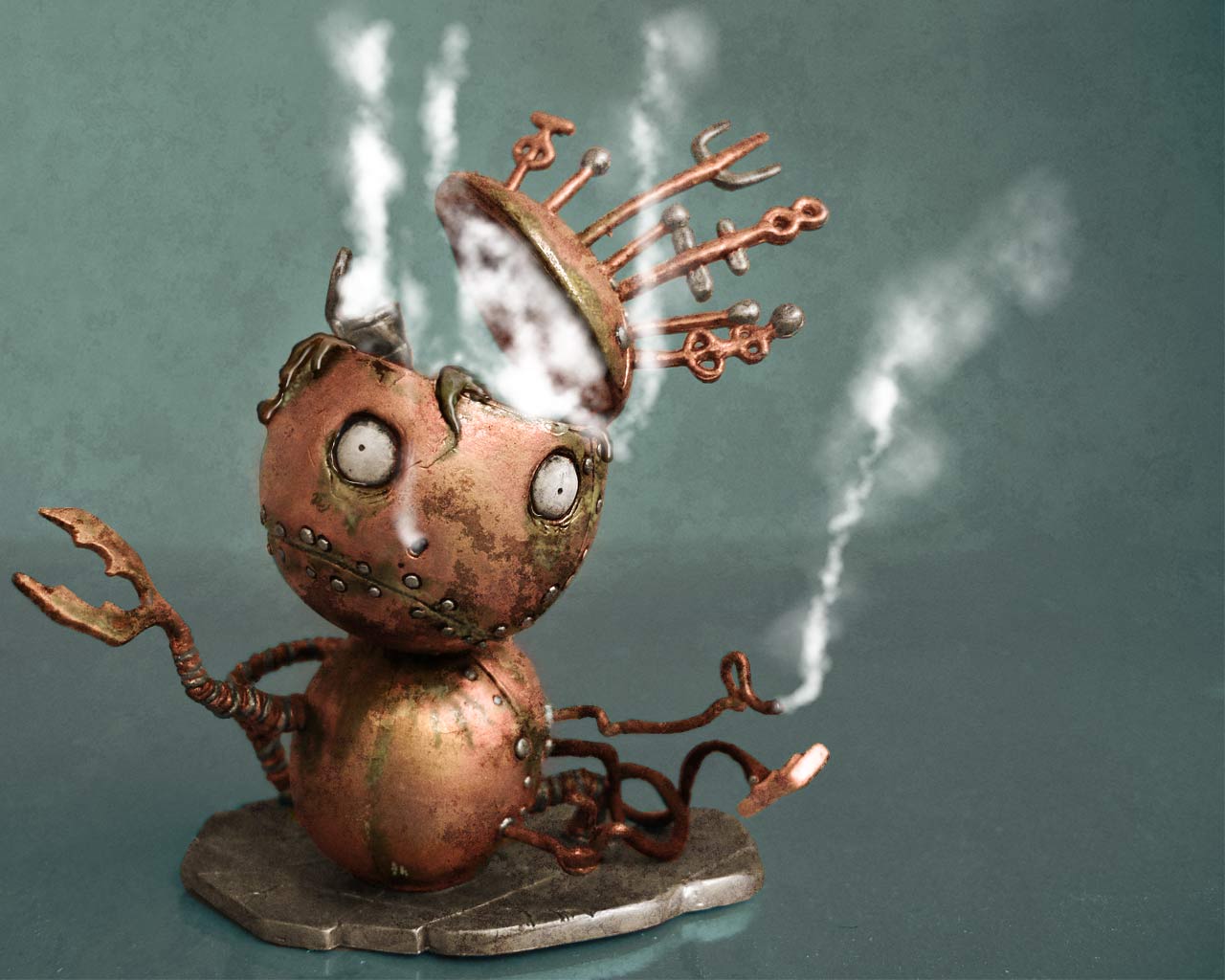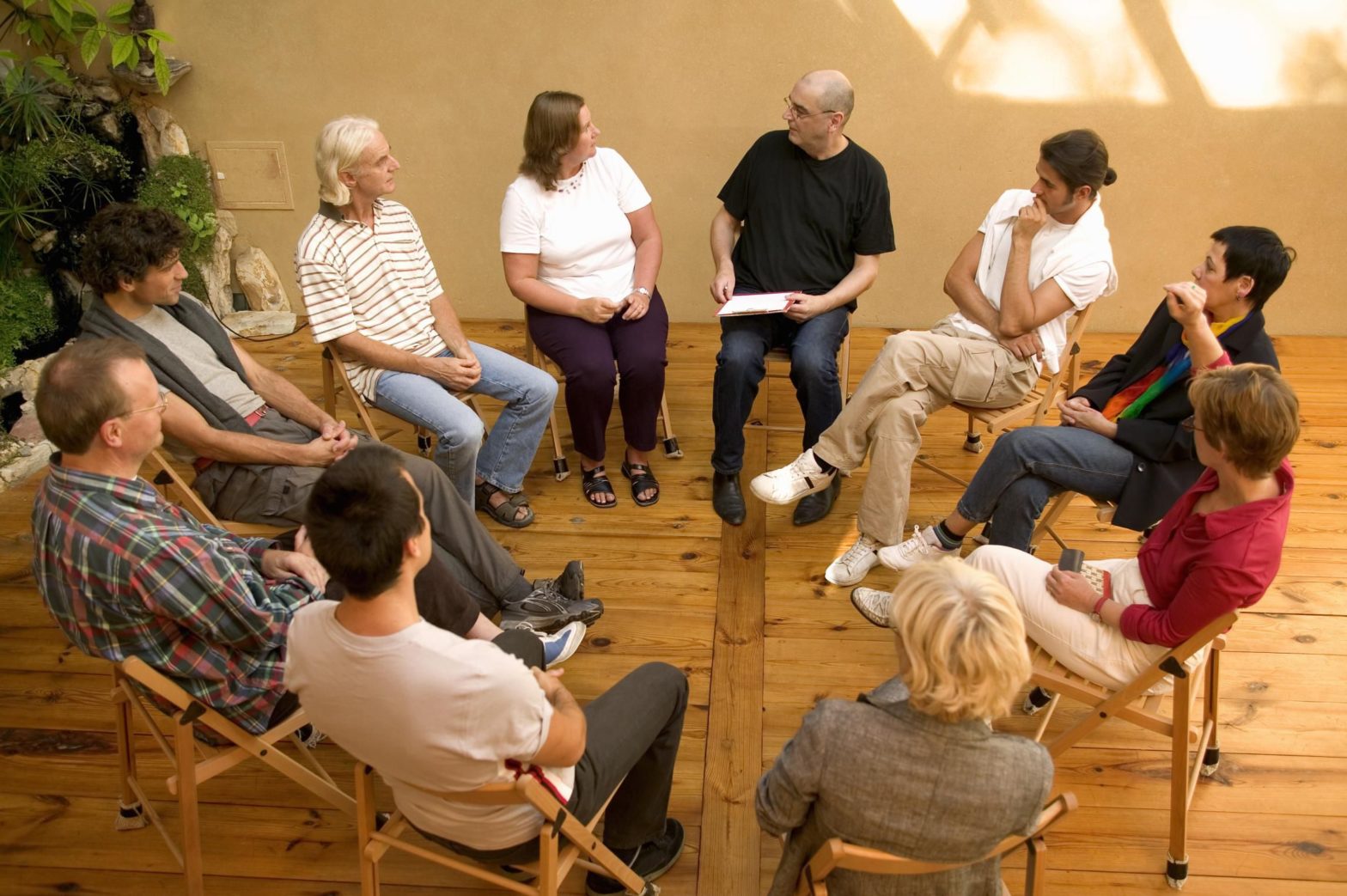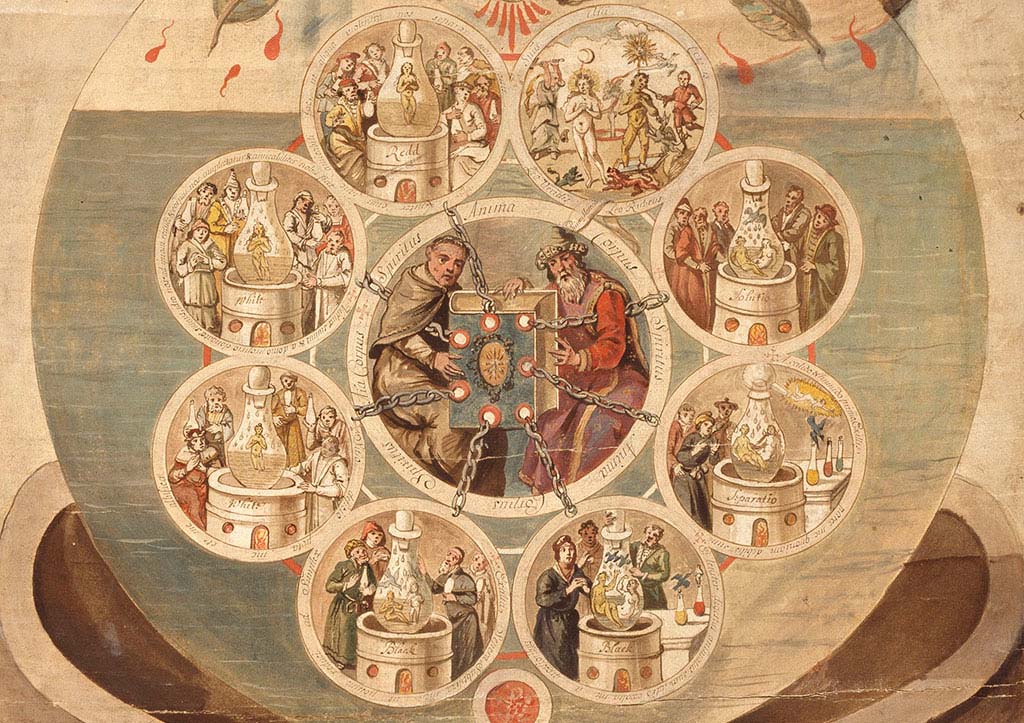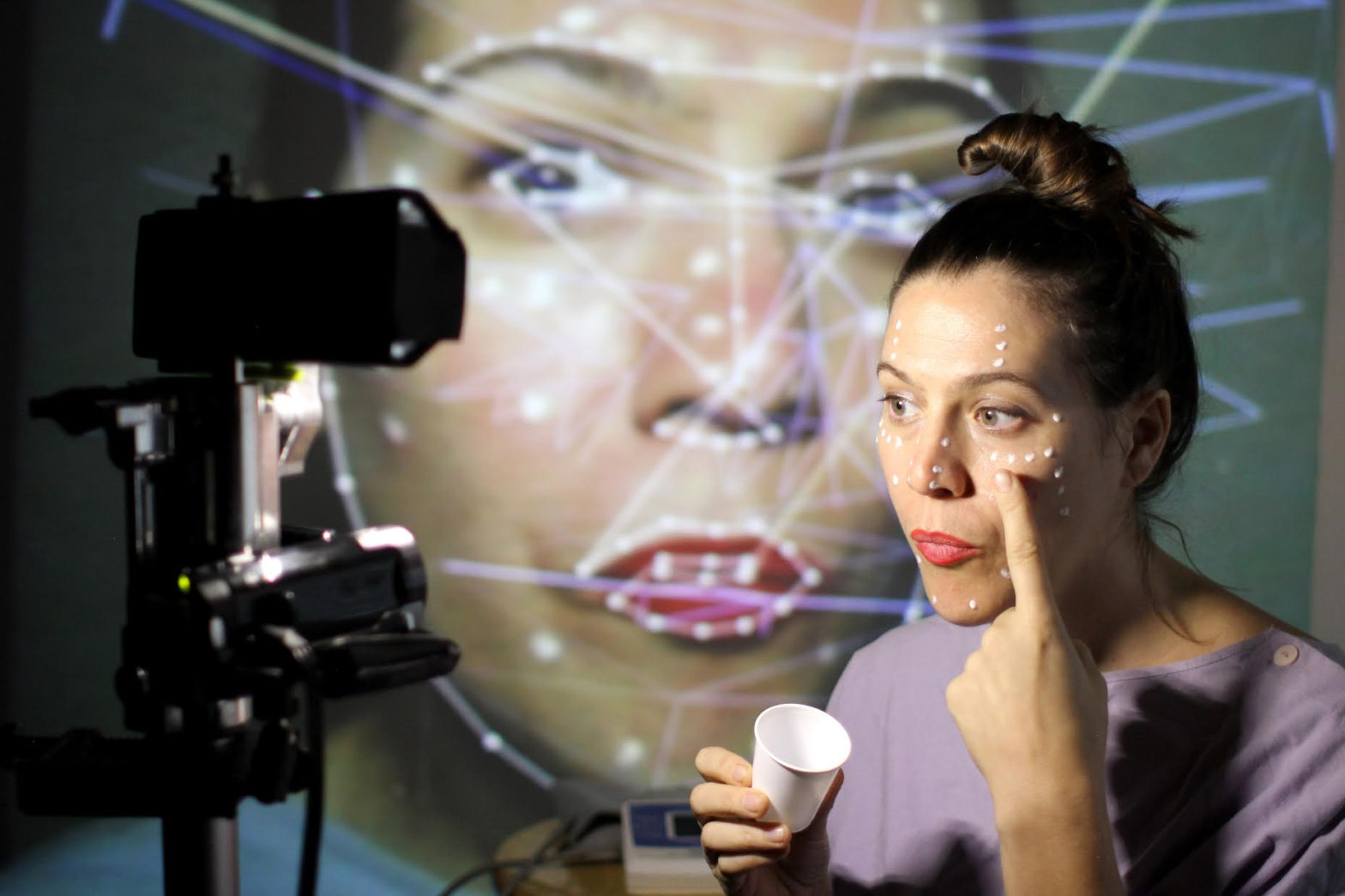Our default operational mode is to work via pressure. Not to work under pressure that is, but by means of pressure. Pressure means that the reason we are doing this or doing that lies outside of ourselves — we are trying to obtain what has been defined by thought as a ‘desirable outcome’ or we are trying to avoid an ‘undesirable outcome’. We are always either seeking advantage or sidestepping disadvantage but either way the reason for our activities lies ‘outside of ourselves’. We’re fixated upon a world that is external to us.
We can’t really see this properly because it’s so very normal for us. We don’t understand what’s being said here because ‘the outside’ is all we know. The point is however that the motivational force acting on us isn’t really ‘an expression of who we really are’ — is not intrinsic, it’s extrinsic. Something else — our thinking, our ideas about ourselves and the world — is telling us that such and such an outcome is good, or that such and such an outcome is bad. What extrinsic motivation means (when it comes down to it) is that we are compelled to act based on what our thinking tells us and our thinking isn’t us. Thought is always ‘an external mechanical authority’: we are compelled to act this way or that based upon what we see as necessity; we are under pressure to act and — more than this — we’re under pressure to succeed within the terms that have been given to us.
The difference between intrinsic and extrinsic motivation couldn’t be greater therefore — how could there be a bigger difference than that between a force that is acting on us from the outside (which has nothing to do with our true nature) and the free expression of who we actually are? What we are actually asking here is of course ‘What could be a bigger difference than the difference between slavery and freedom?’ We can hardly hope to smudge the distinction between these two things! And yet despite the complete lack of similarity between these two forms of motivation we very rarely make any distinction — the gulf between freedom and slavery is glossed over as if it doesn’t exist. In short, we don’t see the difference between being acted upon by forces that come from outside of ourselves and acting in accordance with our intrinsic nature (without there being any ‘compulsion’ involved whatsoever).
The reason we can’t ‘see the difference’ is of course because we have internalised these external forces — we have been doing this since an early age. This is what happens when we are brought up in environment that is based on controlling, as is almost always the case. Most families are controlling, and our ‘collective’ families — which is society — is always controlling. Society functions on the basis of conditioning — not on the basis of freedom, not on the basis of encouraging everyone to think for themselves and be whatever it is in their nature to be. Another way of putting this is to say that we are ruled by belief, and our beliefs are forced upon us from the outside. Beliefs are always denying of individuality/autonomy and yet we persist in thinking that belief — the enforcement of ideas upon people from the outside — is a good thing.
We think that ‘passing on belief’ is a good thing because we feel that what we are believing in is actually true, but the thing here is of course that we only think that our beliefs are true because we ourselves have been have already been conditioned by them! We are being ‘obedient to the belief’ in thinking that ‘the belief is true’ — all beliefs require us to accept them as being actually ‘true’. No matter how palpably foolish or preposterous a belief might be it will always require us to accept it as being absolutely true. So because we live in, and have been brought up in, a ‘coercive environment’ which doesn’t allow us to think for ourselves (or be ourselves) we can’t tell the difference between intrinsic and extrinsic motivation, despite the immense gulf between the two. We have no ‘inner life’ of our own, only the beliefs and opinions and viewpoints that have been put into us. We dream what we have been told to dream, and that’s what makes the (consumerist) world go round. We all have to value and desire the same stupid things; we all have to be walking down the same well-worn path.
Having no genuine life of our own means that we have to ‘run on pressure’ — that’s all that’s left to us in the absence of ‘interiority’. Not knowing who we really are, all we can do is rely on various types of pressure — pressure to do this, pressure to do that, pressure to do the other. This very easily gets to be all too much for us and so then we become candidates for stress-management, candidates for anxiety-management (or perhaps anger-management). This is a very great irony, if only we could see it. All over the world stress-management programs are being taken seriously and staff are being sent to them by companies, hospitals, organisations of all sorts, all of which institutions operate in the first place only by ‘putting pressure on their workers’. When the pressure gets too much we are told to go on a stress-management course, which involves us ‘putting pressure on ourselves not to be so pressurised’. Anything that is based on a generic way of doing things, a ‘one size fits all’ method, is pressure. We learn ‘skills’ it is true, but skills are rules: ‘skills’ equals ‘rules’ and ‘rules’ equal ‘pressure’. Rules are of course the very quintessence of pressure.
We are a certain way (stressed out, anxious, or angry) and so then we put ourselves under pressure (however subtle) to be a different way. Whichever way you look at it is still pressure — the only thing that wouldn’t be pressure would be where we are able to give heartfelt permission for that pressure (stress or anxiety) to be there, but in order to do that we would have to have a sense of genuine interiority, we would have to have an ‘inner life’. Or to put this another way, we would have to have ‘inner freedom’ (which means ‘freedom from rules’). We would have to have inner freedom since without it we cannot give permission for anything — without inner freedom we can only ever ‘control or be controlled’.
The same is true for CBT and all cognitive therapies — my thoughts are putting pressure on me one way or another (they are putting the ‘big squeeze’ on me, so to speak) and so I use the techniques of CBT to prevent these thoughts from controlling me in the way that they are. I am using the ‘pressure’ of the techniques in order to counteract the pressure that the negative thinking is putting on me, and so I’m ‘using pressure to counteract pressure’. This may offer temporary relief (and then again, it may not) but the end result is not going to be good for me either way, since I have merely been drawn in deeper to the web of control and counter-control. There is no freedom here, for sure! What would help me is (again) for me to find it within myself to unconditionally allow these painful or worrying thoughts to be there; then — with no more resistance to feed on — the thoughts would lose their power over me. Without inner freedom (or inner peace) I cannot do this however, and the one thing CBT can never teach me is how to find inner peacefulness.
Anything we do in the name of therapy — if it does not result in the development of a sense of our own interiority, or connection with our own ‘inner life’, is a farce. If I’m troubled in my mind then teaching me strategies to ‘manage’ these troubles just adds to my burden — that just adds to my bondage, my slavery to thought — and it is this slavery that lies at the root of all my problems. We don’t even know the true meaning of the word ‘freedom’ however — all we know methods of control, and control — no matter how successful it might be it seem to be at first — always leads to more dependency upon control (which is a loss of freedom). The greater our initial ‘success’ therefore the more dependent (or ‘enslaved’) we are going to become later on. The root of all our psychological problems lies in the fact that we are running entirely on pressure (entirely on extrinsic motivation) and that — as a consequence — we know nothing else. We don’t have any concept of what intrinsic motivation is; for us to know that we would first have to have some sort of genuine ‘inner life’, a life which is by its very nature ‘independent of what happens on the outside’, and which does not — on this account — need to protect itself by investing more and more in control…









